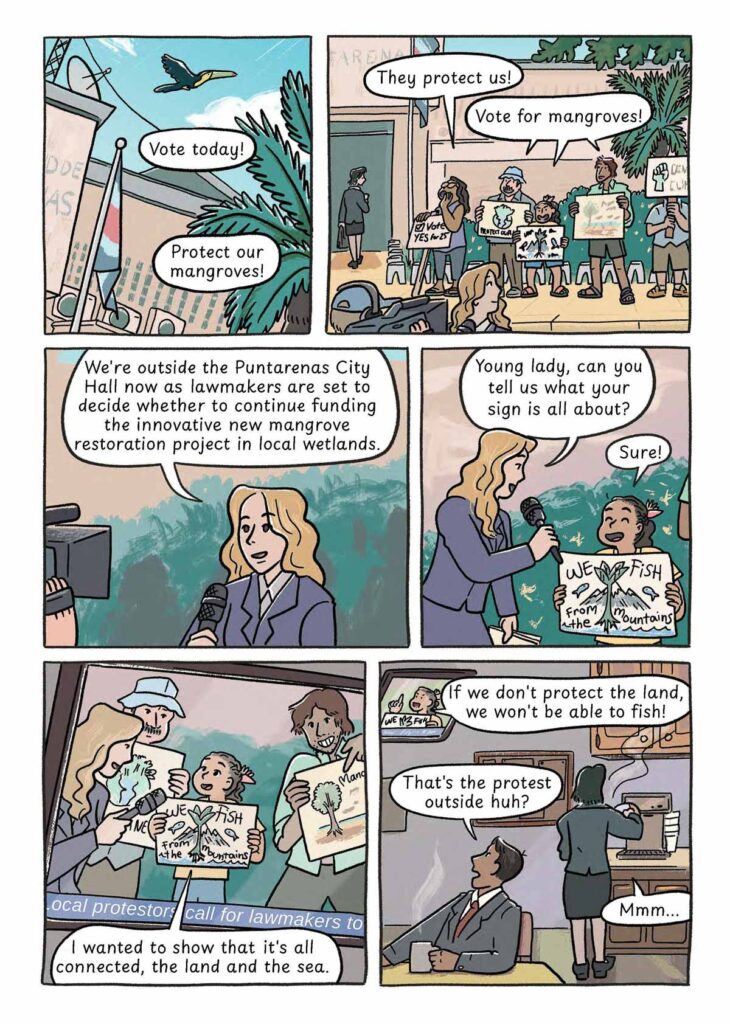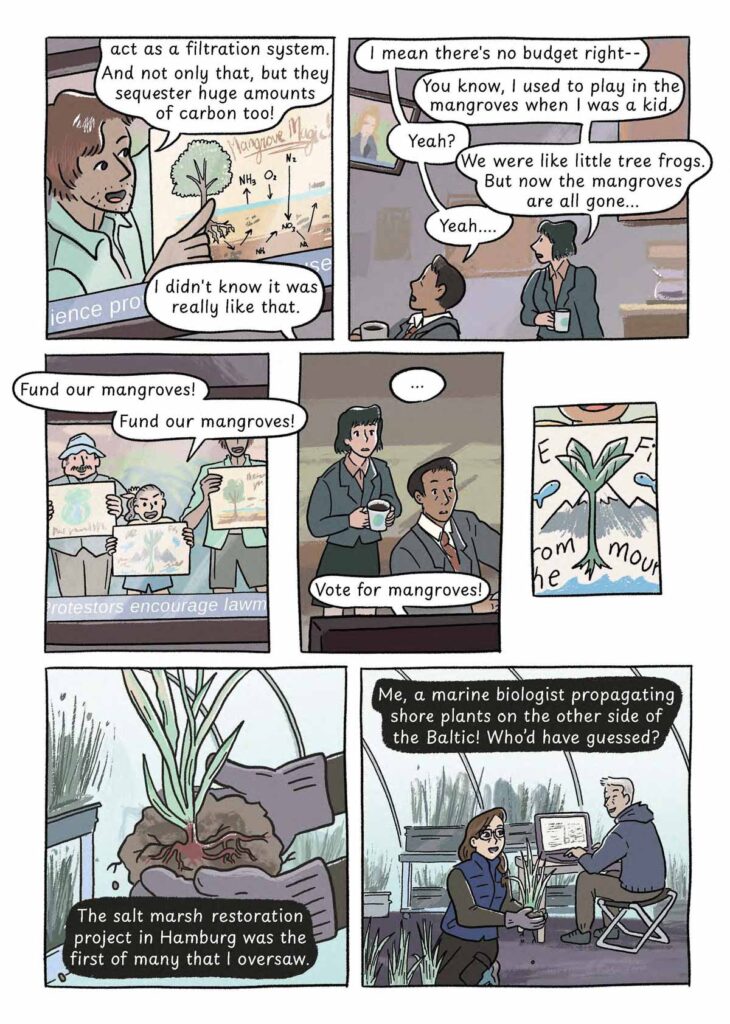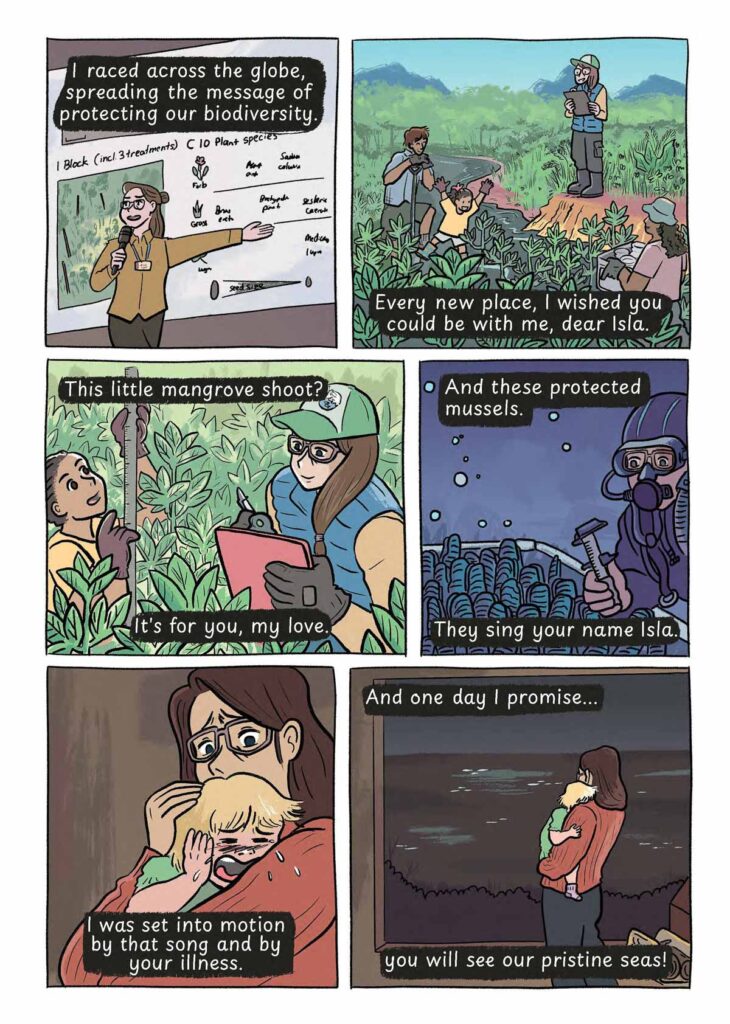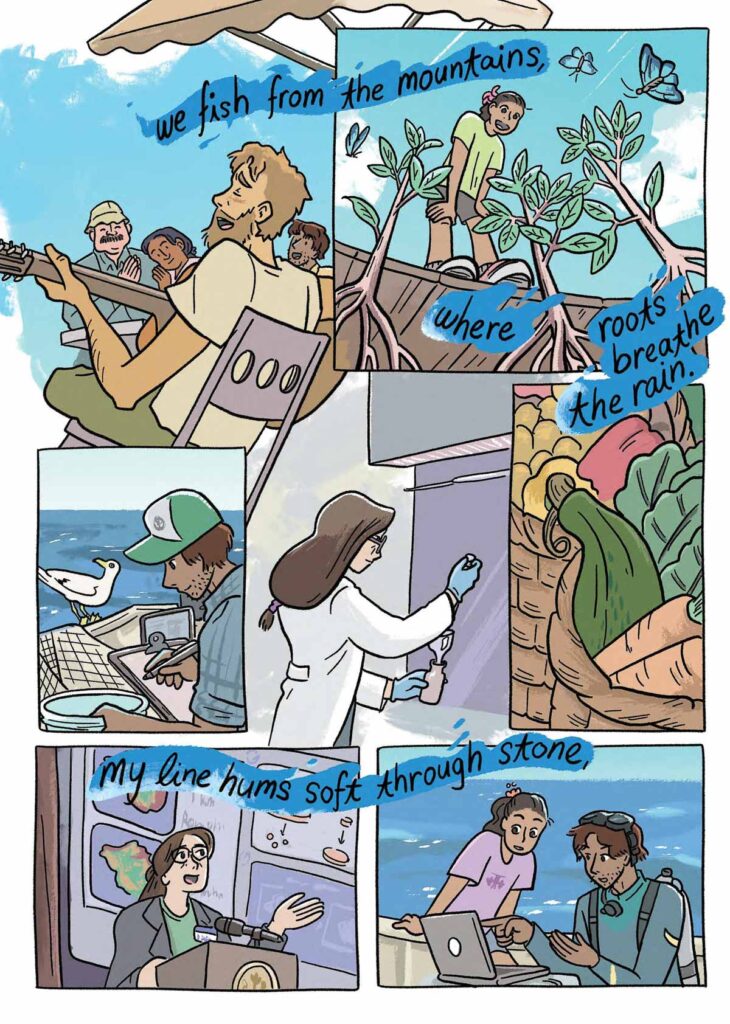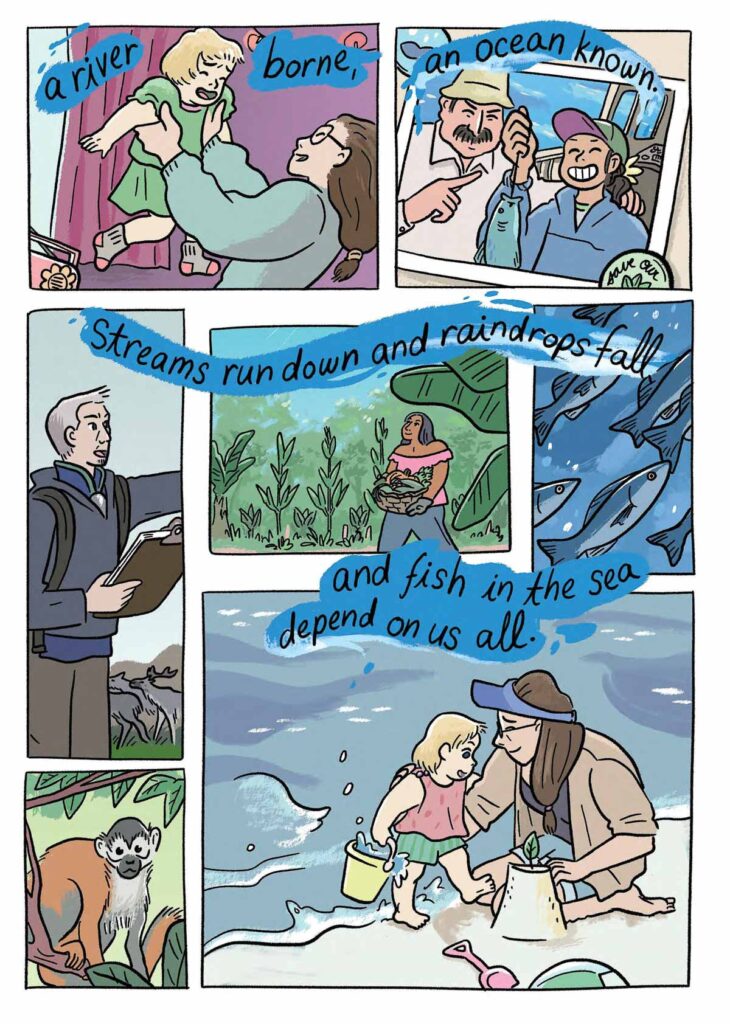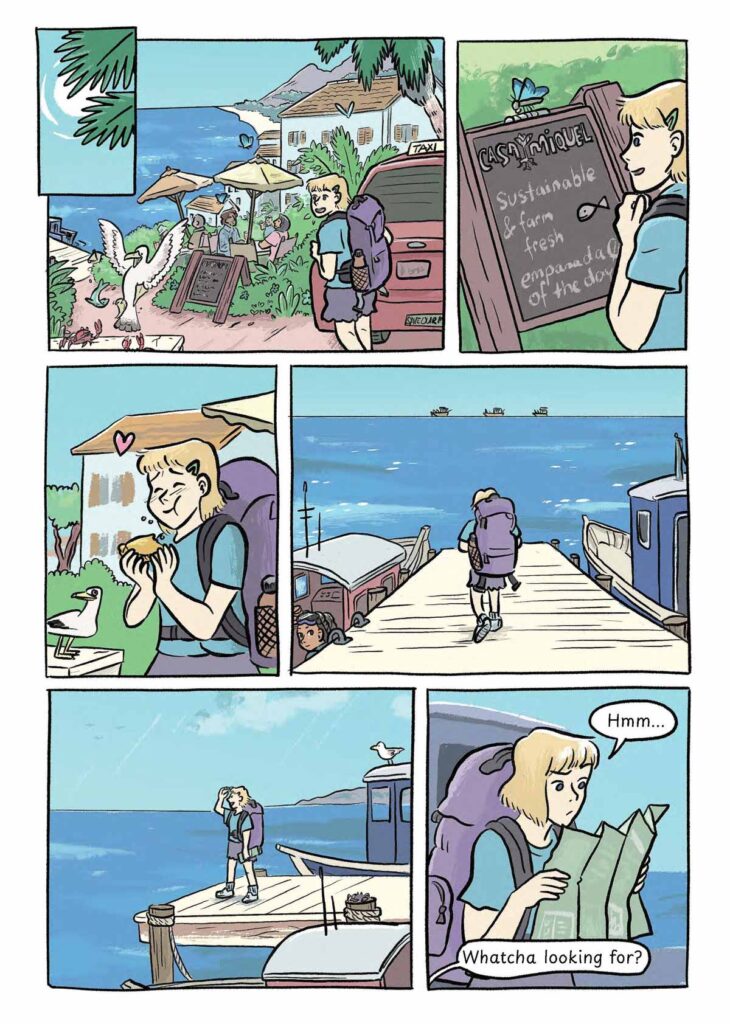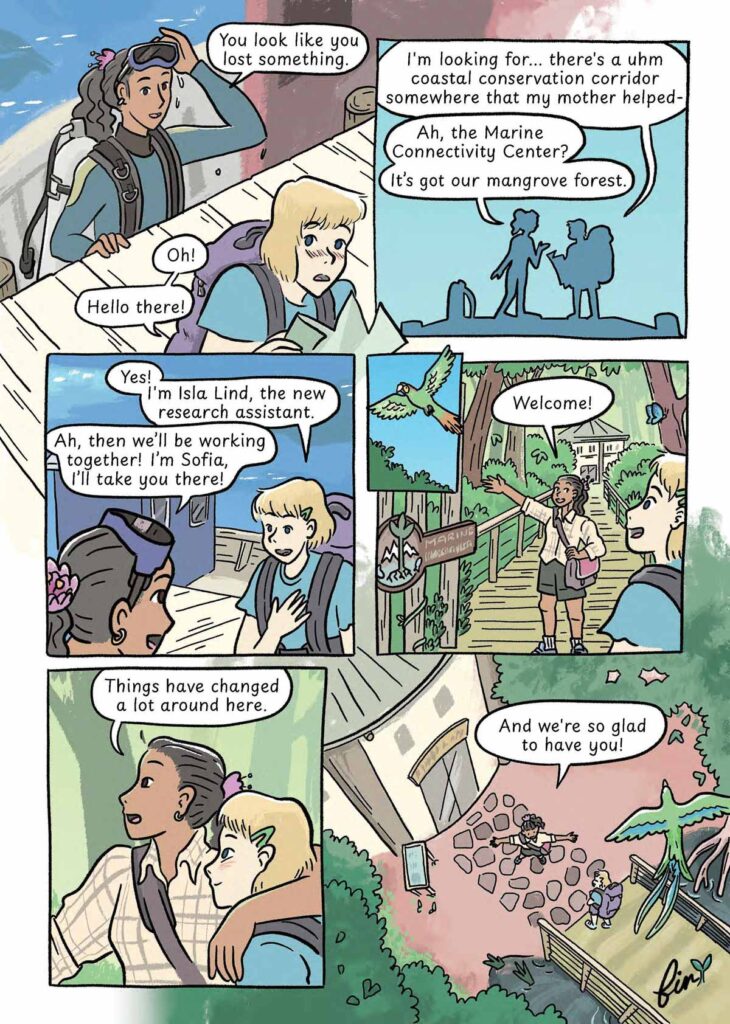“Tides of Change” was developed by Biodiversa+ and The Nature of Cities, drawing on findings from the BiodivClim research projects. By blending scientific insights with storytelling, the comic offers a creative way to engage with complex environmental issues and reflect on our changing world.
In “Tides of Change,” as a scientist investigates the declining fish population in Costa Rica, young Sofia claims “We don’t fish from the ocean, we fish from the mountains.” When the scientists and local communities act together, they come to interesting conclusions.
[Click the QR codes for deeper insights.]
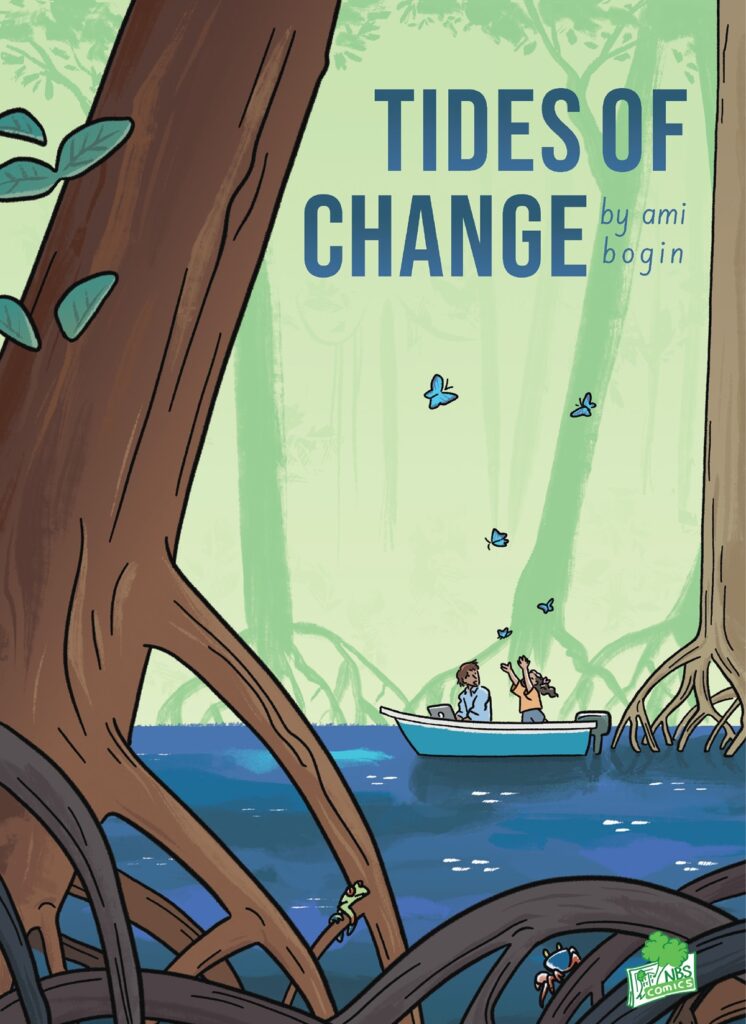
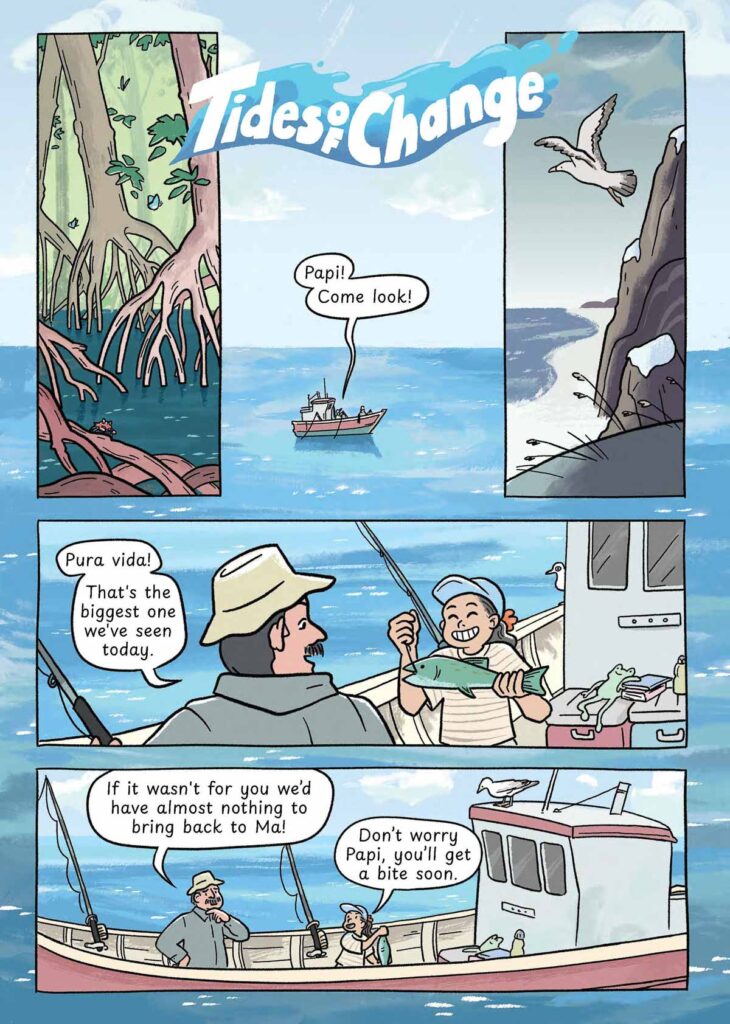
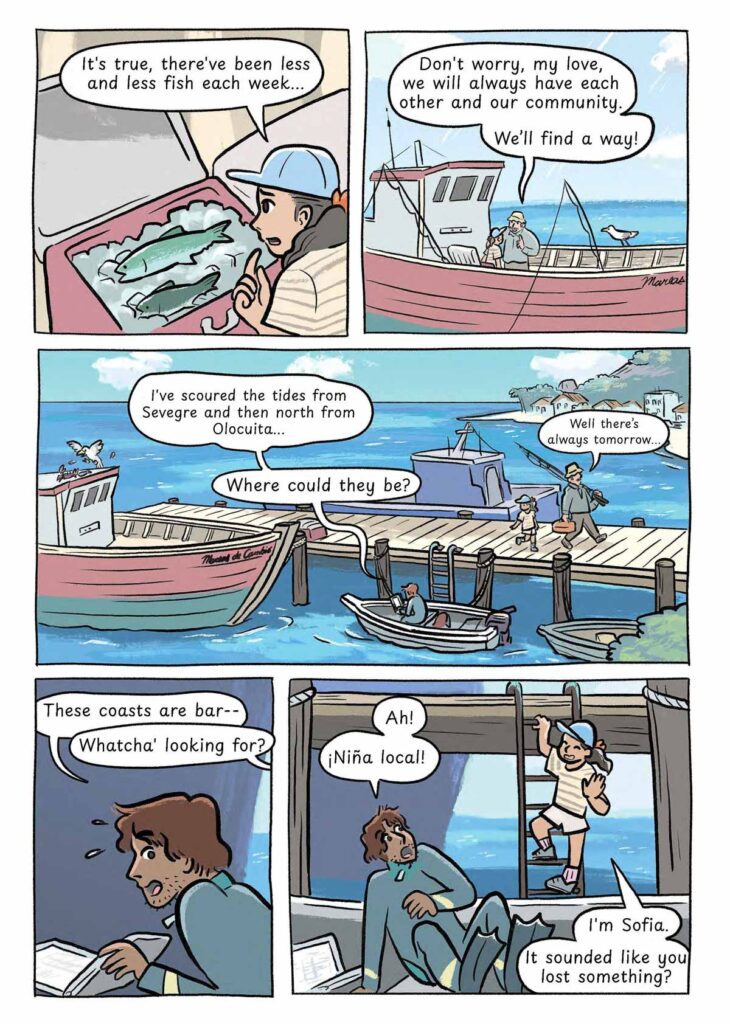
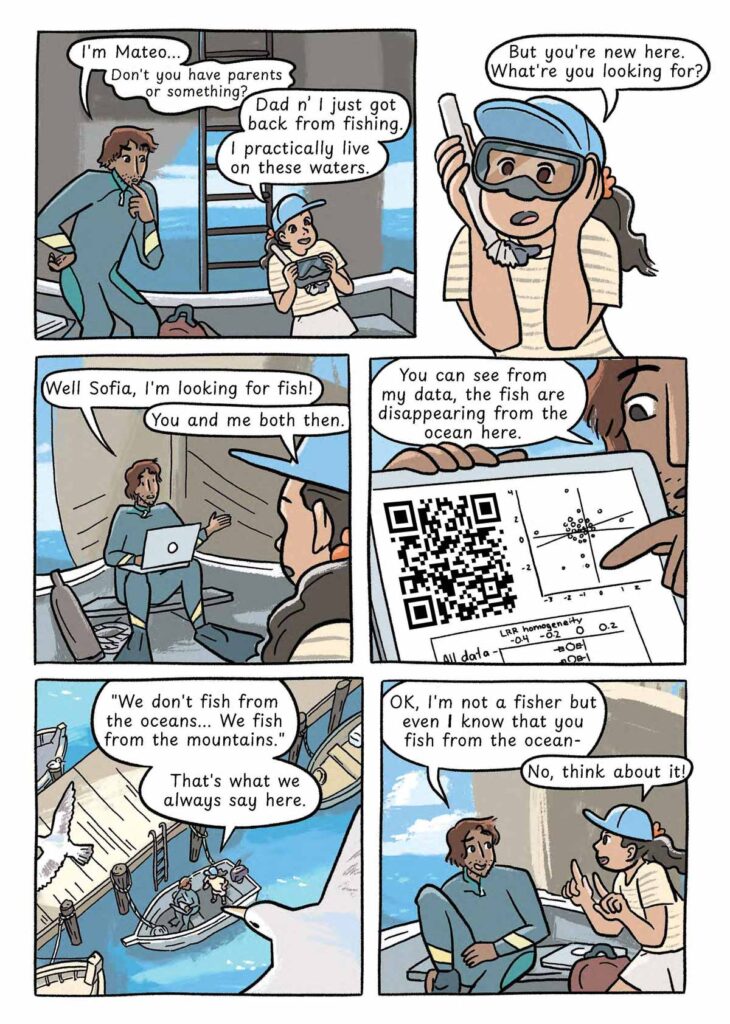
The GenClim project investigates such changes in fish populations and their genetic adaptation to the changed conditions in the Eastern Atlantic. Special attention is on the North Sea, the Iberian Coast, and the Benguela region as they experience faster rates of warming than the global average. GenClim includes genetic information in forecasting models of range shifts of three commercially exploited fishes: hakes (Merluccius merluccius and M. paradoxus) and anchovy (Engraulis encrasicolus). Thus, the reliability of forecasts and associated bio-economic models will be increased. Based on this modelling approach and by targeting multiple stakeholders, the project aims to develop recommendations for management strategies.
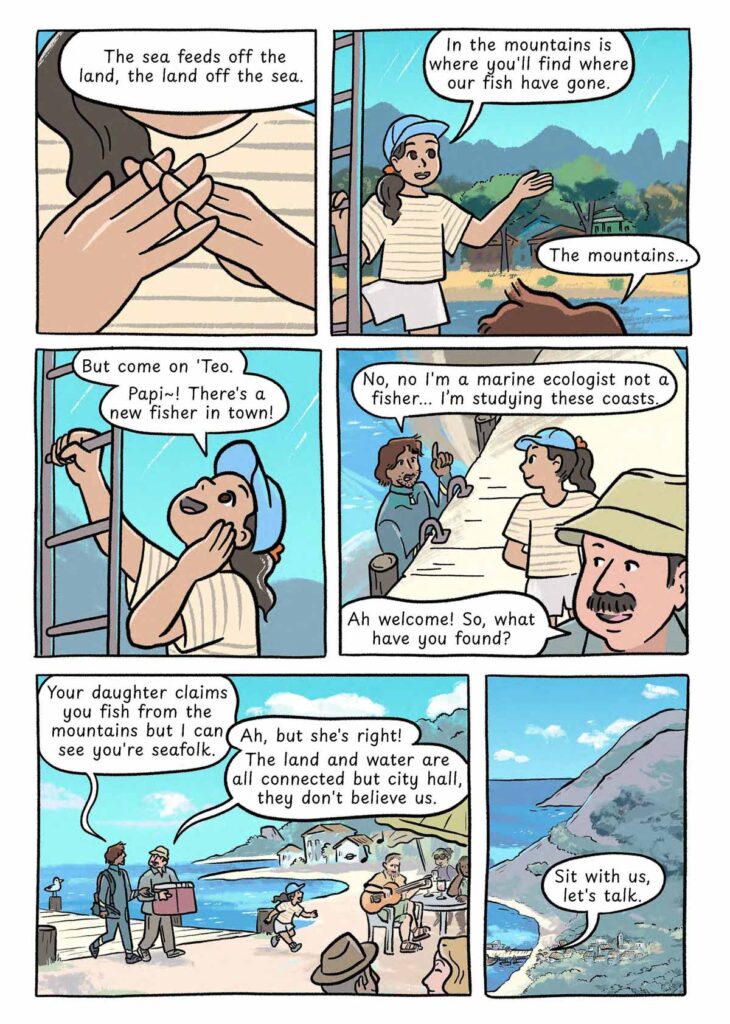
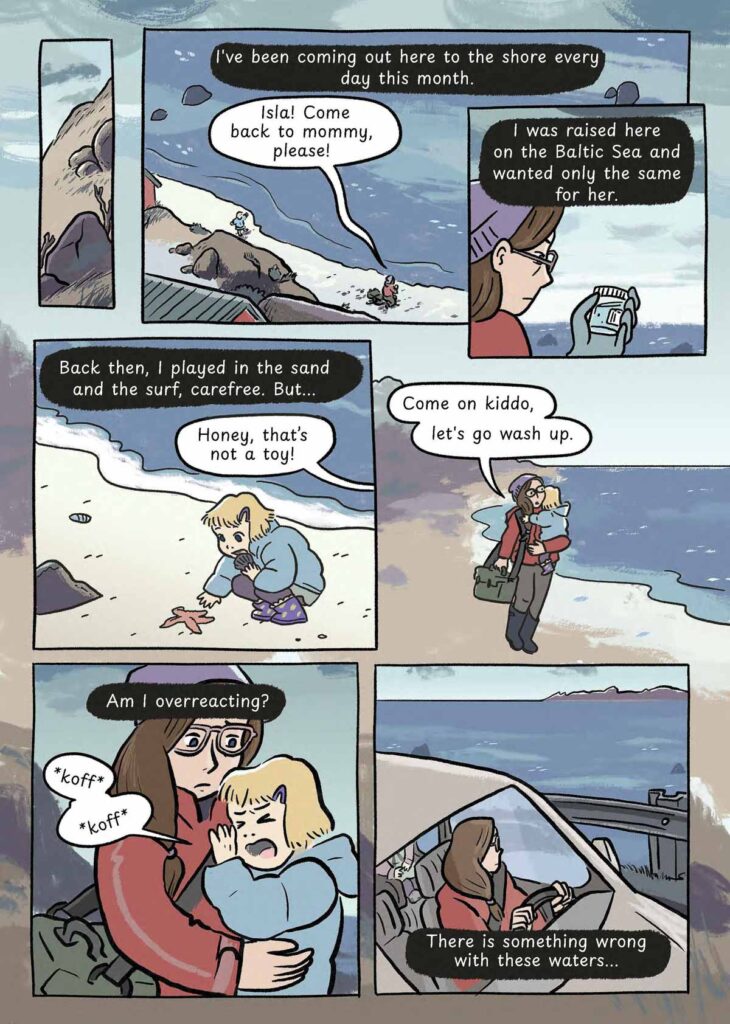
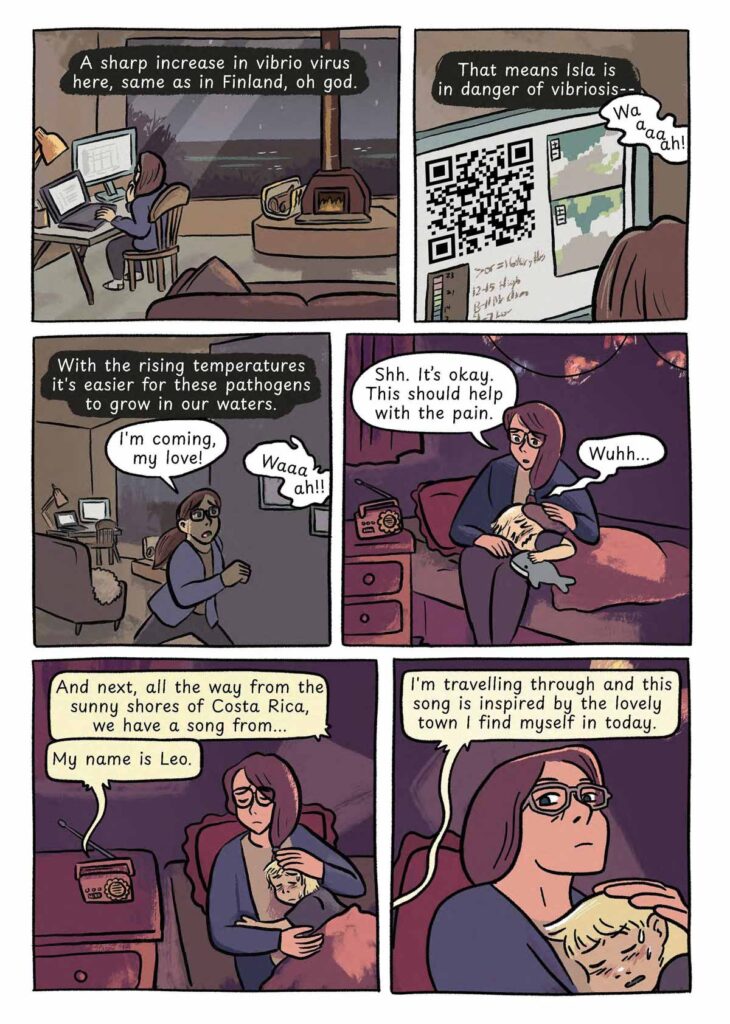
Vibrio microbes, which are part of the natural bacterioplankton in temperate marine waters have increased in the Baltic Sea in recent years, probably stimulated by elevated surface water temperatures. Several Vibrio species are human pathogens. It is hence of great concern that Vibrio-related wound infections and fatalities have increased dramatically along the Baltic coasts. Future climate change is predicted to escalate this problem, posing a significant threat to human health and Baltic tourism. However, these projections do not yet take into account the influence of helpful habitats such as eelgrass meadows and blue mussels beds on Vibrio abundance. Recent studies suggest that some of these ‘ecosystem engineer’ habitats reduce the abundance of pathogenic Vibrio. This means that nature-based solution (NbS) strategies could help control pathogenic Vibrio in nearshore habitats where humans interact with the sea.
However, climate change remains a wild card. It will continue to affect the structure and functioning of coastal habitats, with as yet unknown consequences for the Vibrio populations in the Baltic Sea.
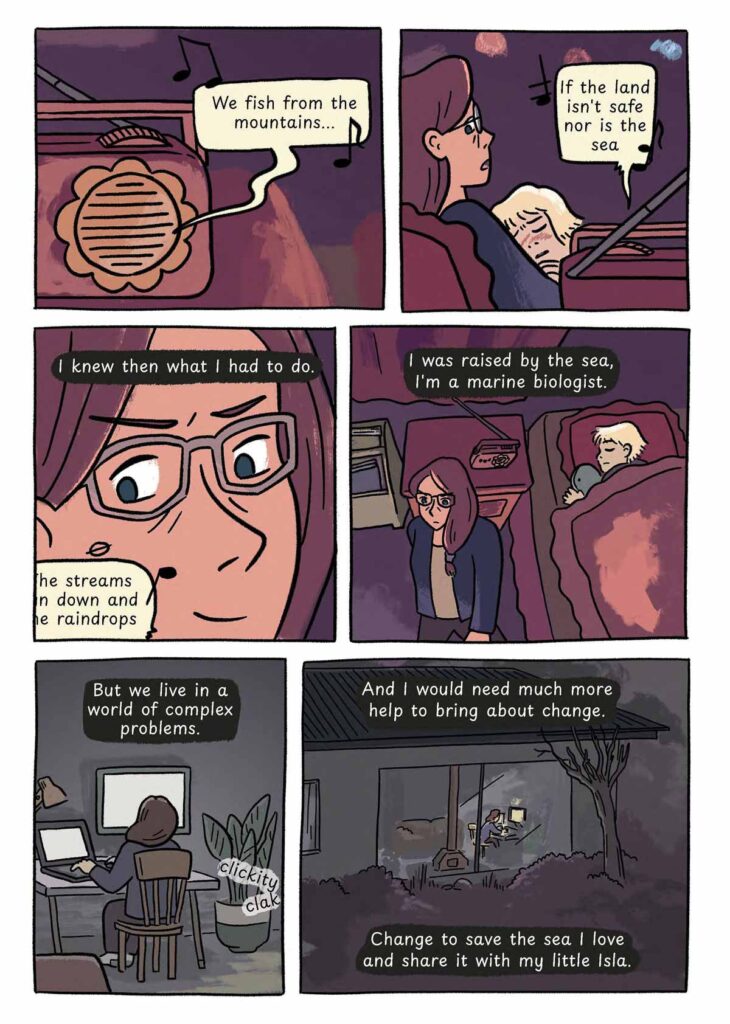
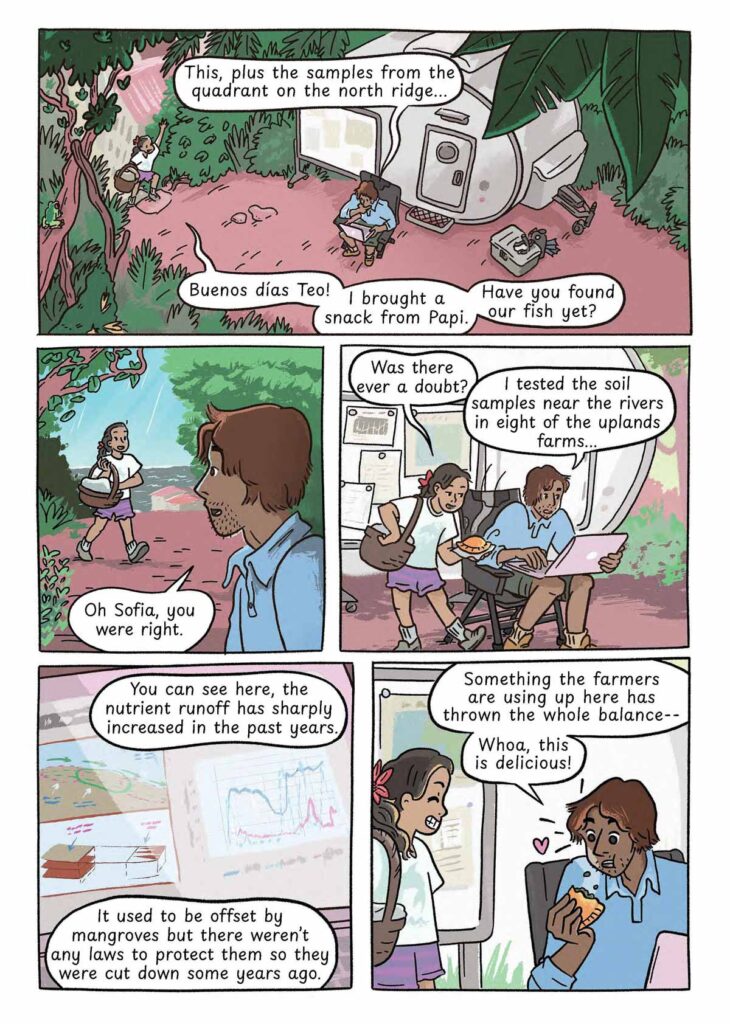
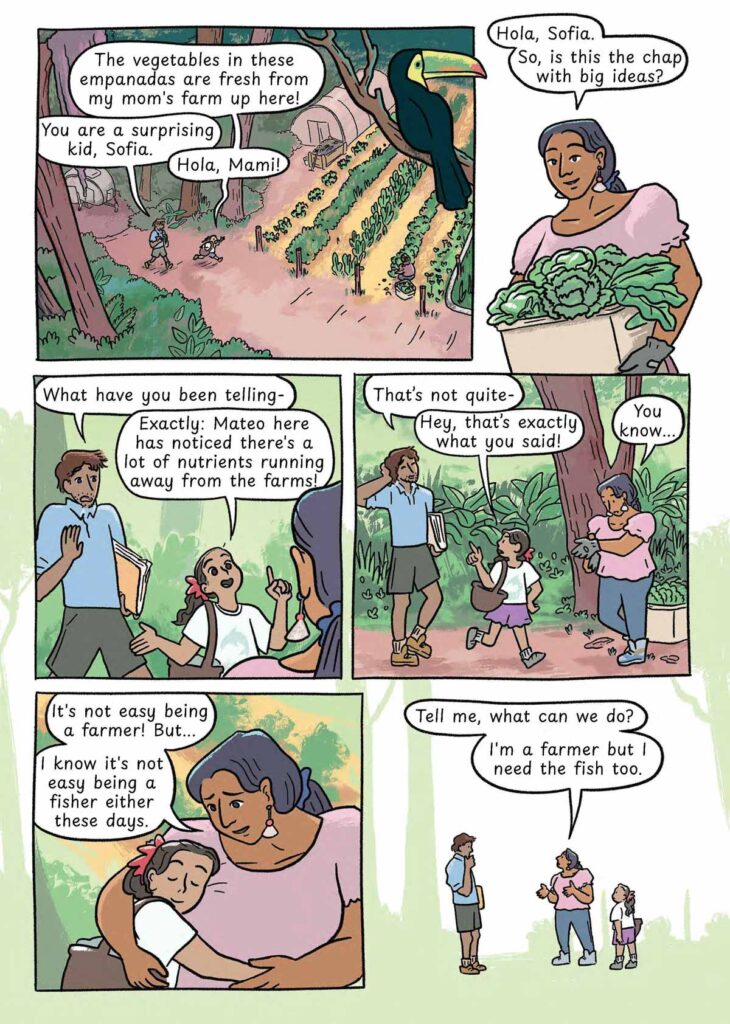
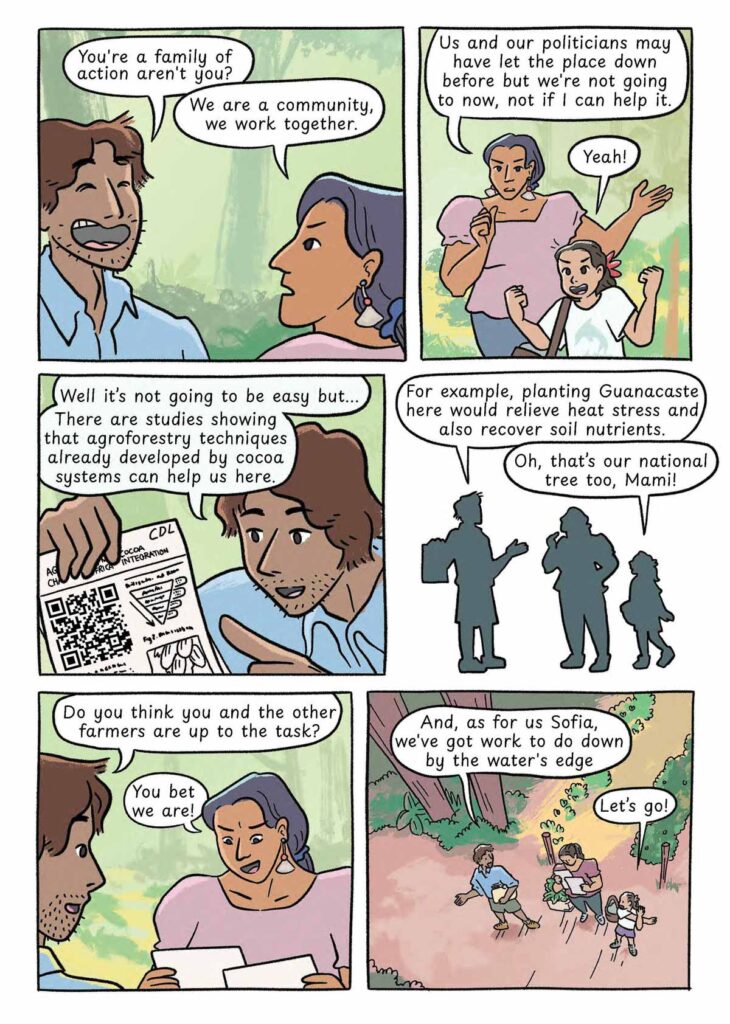
The conversion and degradation of tropical forests have multiple negative socio-environmental impacts. But their restoration, including enhancing tree cover on cleared farmland, is a powerful nature-based solution to climate mitigation and adaptation, with potentially large biodiversity and rural livelihood co-benefits. A major driver of forest loss and degradation in the tropics is the production and trade of food commodities and associated land management practices. Cocoa is the leading forest-risk commodity in West Africa. Yet, cocoa production in agroforestry systems harbours the potential to partially restore biodiversity in key hotspots. Acknowledging these challenges and opportunities, ending deforestation, and encouraging sustainable agroforestry have become a high priority in cocoa supply chains as part of interventions such as the Cocoa and Forests Initiative.
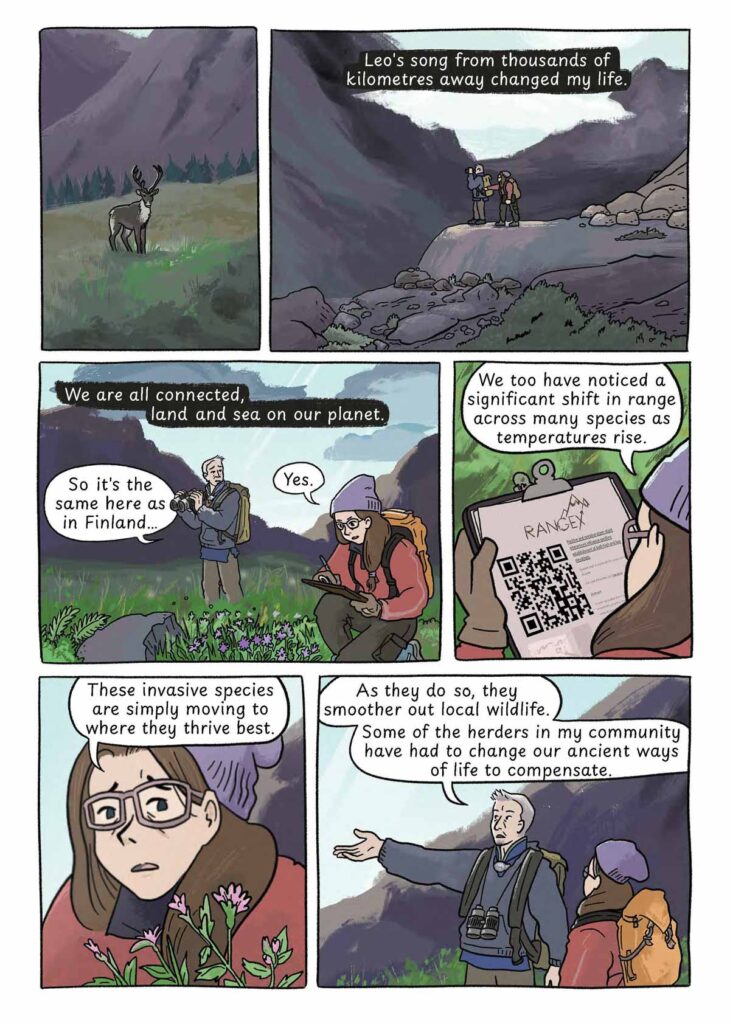
Species are shifting their distributions in response to global warming and through biological invasions, many expanding their ranges across elevation gradients. But they are doing so at widely different rates, leading to a reassembly of ecological communities that could have even more profound impacts on the future of biodiversity, ecosystem functioning, and nature’s benefits to people. To anticipate and respond to these challenges and opportunities, we require both a process-based understanding of range expansions, and a shared understanding of this issue between researchers, natural resource managers, and policy-makers.
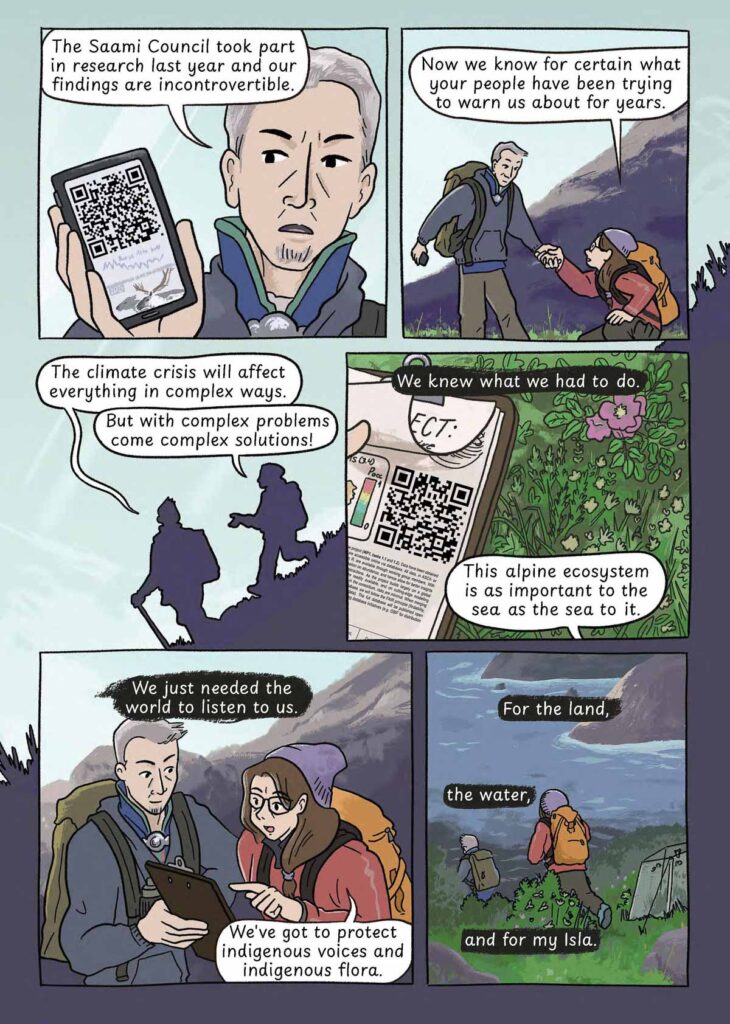
ASICS shows that the effects of global change and increased global connectivity facilitate the arrival and establishment of new species in cold environments. A growing number of non-indigenous invertebrates, plants, and vertebrate species have now colonized these environments, profiting from increased human-related disturbances. They are increasingly outcompeting indigenous species thanks to their life strategies adapted to opportunistic change, disturbances, and warmer climates. Yet, despite the fact that we might be at a crucial moment in time to save this unique cold-climate biodiversity, we only have a limited understanding of the extent and impacts of both climate-related range shifts and biological invasions in cold regions. There is better scientific knowledge in temperate regions. Studying and managing such events is needed to assist strategic thinking to tackle the ongoing biodiversity crisis.
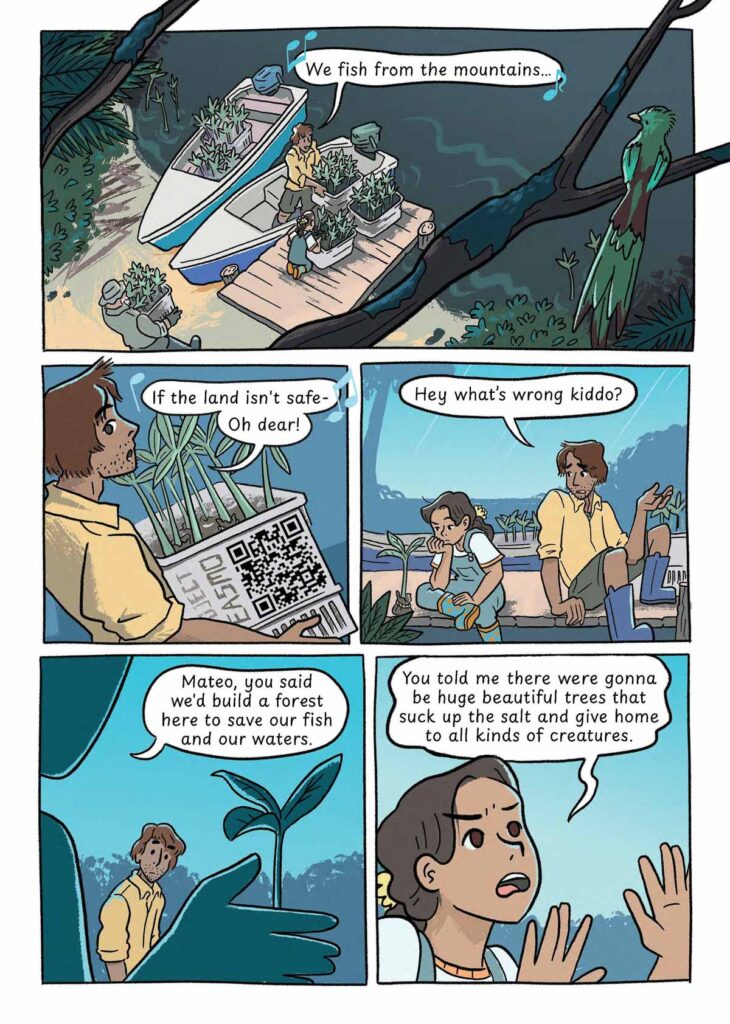
Species are on the move throughout the planet escaping hostile climatic conditions. These movements have advanced four times faster in the ocean than on land, causing dramatic ecosystem changes and redistributing resources across borders. The ecological, food security, and governance implications are obvious. Yet, two persistent gaps hinder our capacity to effectively manage coastal social-ecological systems to safeguard both fisheries and human wellbeing in the face of such challenges: (1) regional studies documenting recent species redistributions have not quantified the social repercussions, and (2) future projections have mapped expected catches and metrics of socio-economic impact (e.g., fisheries revenue) globally but only at coarse scale that don’t help support local or regional decision-making.
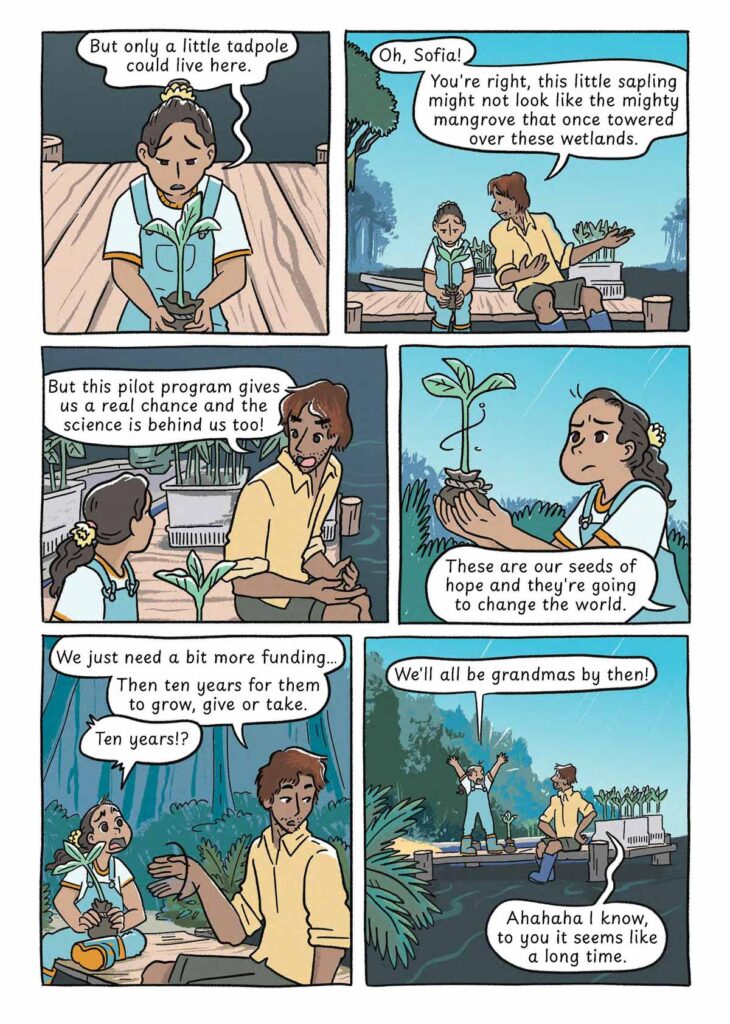
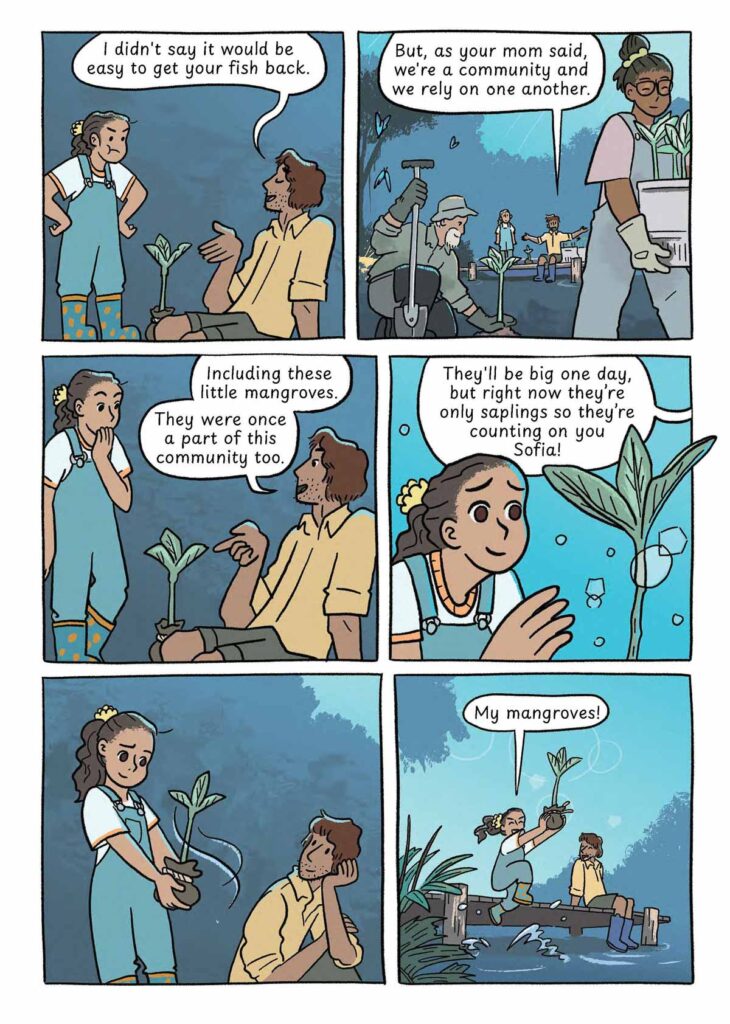
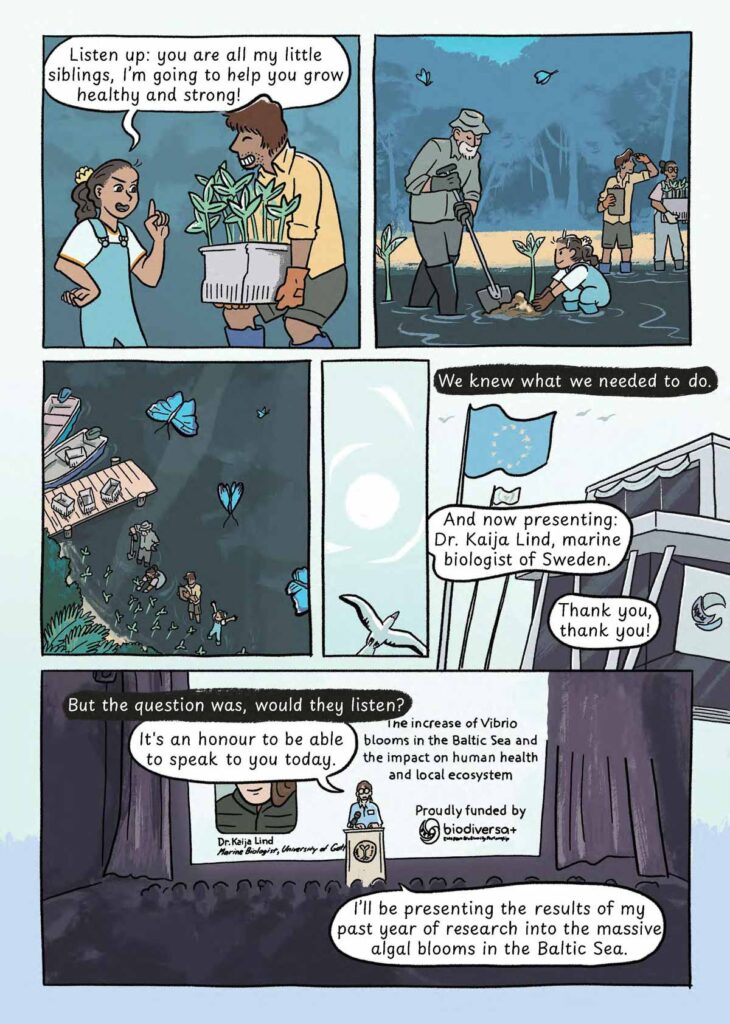
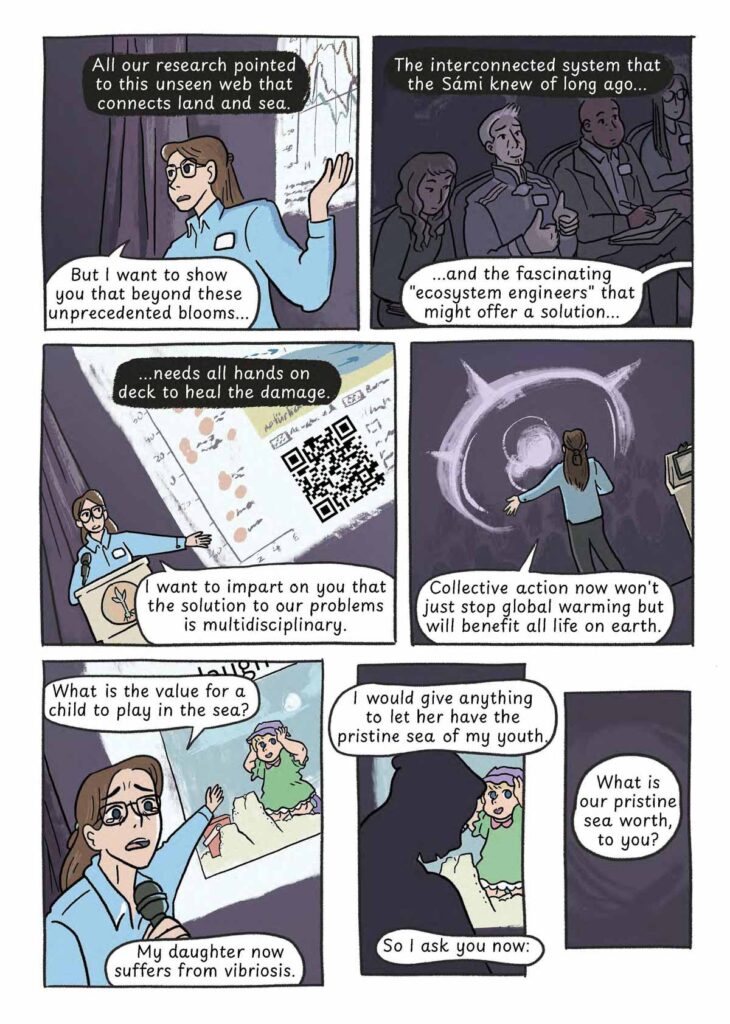
More scientific information for agricultural land use policies for peatlands in the EU to evaluate which land use options after peatland rewetting is best. This knowledge supports key policy objectives such as healthy ecosystems, climate change mitigation, and adaptation, clean water, fair income to farmers, or, taken together, a greener and more sustainable Europe.
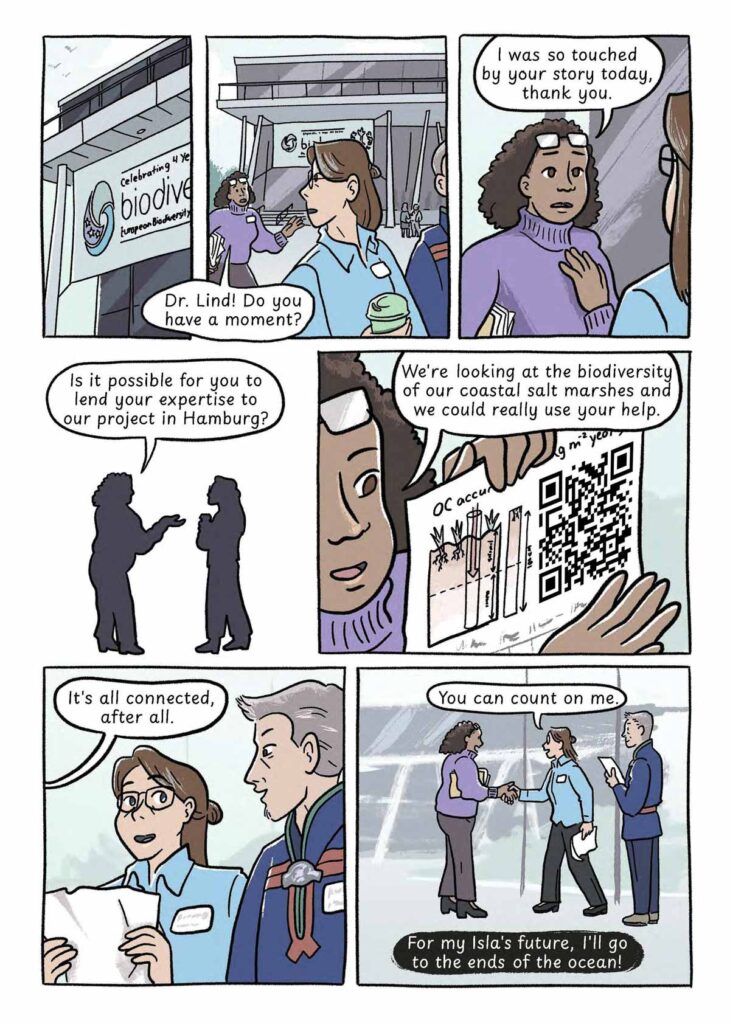
NordSalt will evaluate the potential of management of Nordic coastal marshes as nature-based solutions (NbS) in a local, regional, and global context. To provide the best basis for these considerations, a comprehensive range of climate and coastal protection-related ecosystem services (ES) of these habitats will be evaluated and discussed with relevant policy, management, and local stakeholders. On this basis, NordSalt will inform sustainable management practices under current and future climate settings.
